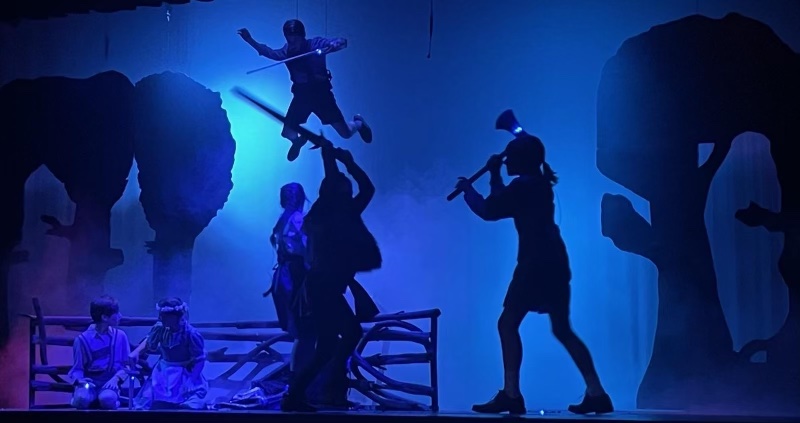
Imagine a pitch-black sound stage.
Cue a single spotlight.
Enter Walt Disney.
He speaks. It is not his own voice, but that of a wicked queen, a magic mirror, and a fair, but forlorn maiden. He acts out an entire story of betrayal, jealousy, friendship, and love.
This is how Disney pitched his grand dream of turning Snow White, the tale of the Brothers Grimm, into the first ever animated feature film. He could have presented his ideas in a boardroom with graphs, charts, and discussions of the numerous technical challenges that might be encountered during this groundbreaking endeavor.
But Walt Disney was a caster of visions. He became a creative guide and lit a spark of inspiration in the hearts and minds of the entire team. At the end of his performance, each and every one of them wanted to make the film a reality every bit as much as he did.
What if we approached teaching our youth in a similar way?
In education, whether in a school setting or at home, it is extremely tempting to dive directly into details of a project or assignment. There are roles to be doled out, tasks to be assigned, timelines to be kept, tests to be taken, and boxes to be checked.
Think about what learning could be like if, like Walt Disney, we began instead by lighting a creative spark in the imagination of the young. What happens is that the child will with heart, mind, and spirit, work to accomplish a task.
One of my favorite movies is Christopher Nolan’s Inception. A thief uses dream-sharing technology to enter the subconscious of his victims and steal corporate secrets. But then he is challenged to do the reverse: enter the mind of a CEO to plant an idea.
This film is creative and entertaining, yes, but it also is a metaphor for what education can and should be because of Nolan’s approach to the imagination and to memory. The broader concept of inception is the ability to express an idea in a way that is so real to the receiver it becomes part of the landscape of their own imagination.
Ideas have a way of taking on new realities, new shapes, and contours when we place them in the hearts and minds of the young. In turn, with their insights, gifts and personal associations, they can build new worlds, sometimes much grander than even what we could have conceived.
Along the way, we can demonstrate to them how our own creative gifts and work ethic can contribute to a meaningful end goal. They see our creative process and how messy it can be with all the mistakes that are made.
Boys need to know that they can be both warriors and poets: men who are strong, brave, and willing to bear the slings and arrows, but also can strike up a song around the fire, enjoy poetry, and wonder at the beauty of the natural world.
A favorite J.R.R. Tolkien quote of mine: “If more of us valued food and cheer, and song over hoarded gold, it would be a merrier world.”
This reminds us that life is not a random tumble through time, or a jumble of things and situations through which we must wade. It is above all an epic story, a story in which each of us have a vital role to play. Understanding that story with more lucidity, and discovering our calling is the most important part of education in my opinion. It is true wisdom.
Our Lord is the greatest vision caster there ever was. At the beginning of His public ministry, Jesus begins walking along the banks of a river, two men walk up to him and say, “Master, where are you staying?” He replies, “Come and See.”
Like so often in His life, He uses ordinary phrases that can be taken on the natural level, and at the same time on the supernatural level. It’s as though He cannot help but express Himself through His two natures: human and divine.
When He asks the men to come with Him, is He simply asking them to come see where He is staying? No, He is also saying this: come on the adventure that will change your life, and help you to see something more than you have ever imagined. After spending time with Him that evening, the next day the men race out to tell their friends, brothers, that they have met the Messiah, the One who is to come.
What did Our Lord tell them that night? It is not recorded, unfortunately. Whatever Jesus revealed to the Apostles welled up in their heart, inspired their imaginations, and filled their minds with ideas. The imagination has the power to see the Kingdom. While some stories are inspiring and help us see reality, no vision caster has ever been able to achieve the Inception that Our Lord made happen. Because He is both God and Man the vision He places in our imagination through his teaching and example, is real. It is performative. It becomes a life within us, or one might say a Kingdom.
When teaching boys, if we start with a spark of inspiration and open up the realm of the imagination, our vision casting through story, poetry, song, drama, art, have the power, in Christ, to present the landscape of the Kingdom before the eyes, minds, and hearts of the young.
